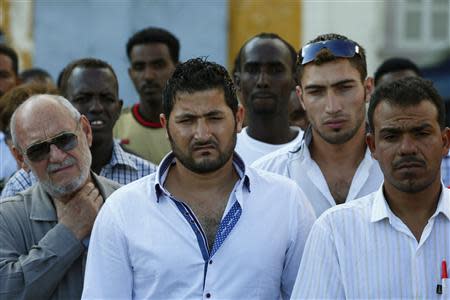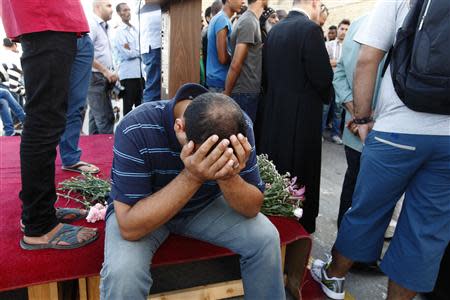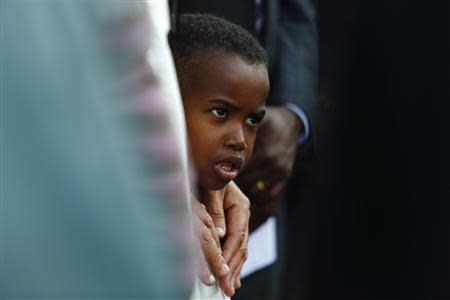EU leaders rebuff calls for action on Europe's migration crisis
By Adrian Croft and Justyna Pawlak BRUSSELS (Reuters) - European Union leaders rebuffed calls from southern European states on Friday for emergency action to tackle a wave of illegal migration from Africa despite the deaths of hundreds of people in Mediterranean boat disasters. EU leaders meeting in Brussels expressed "deep sadness" at the drownings, which have killed up to 550 migrants this month alone, but postponed any new action until December. A more thorough overhaul of the bloc's immigration policies will wait until after next year's European elections when rising anti-immigration sentiment is set to boost far-right parties. Italian Prime Minister Enrico Letta, among southern European leaders who had called for urgent action from the EU summit, put a brave face on the outcome, saying EU leaders had shown solidarity with countries bearing the brunt of the problem. "I think that we reached the key result that the issue has become a European issue, not simply an Italian issue, or Maltese, or Greek," he told a news conference. But he said this would not be sufficient unless the EU followed it up with practical steps. Southern European governments demanded what they see as a fairer sharing of the burden of dealing with the crisis with northern European states and an increase in EU funding. But governments in wealthy northern countries, wary of opinion polls showing a surge in anti-immigration sentiment and rising support for far-right parties that are expected to do well in next May's European Parliament elections, resist increasing their responsibility for handling the problem. More than 32,000 migrants from Africa and the Middle East have arrived in Italy and Malta so far this year, according to the United Nations, making a perilous crossing of the Mediterranean in rickety boats. The breakdown of order in Libya and the civil war in Syria have swelled the exodus. SURREAL EU leaders proposed no specific new steps to counter the crisis, beyond asking an EU task force to look at how to make migration policies more effective and report back in December. Nor did their statement mention any increase in resources for the EU's Frontex border control agency, as sought by Letta. The countries on the frontline of the migration crisis, including Greece, Malta, Cyprus, Spain and Italy, are among the hardest hit by Europe's financial crisis, leaving them with little muscle to deal with mass migration. Italian navy and coast guard ships rescued more than 700 migrants between Sicily and North Africa overnight as the immigration crisis showed no signs of abating. Malta's Prime Minister Joseph Muscat said on Thursday it was "surreal" that the digital economy was at the top of the leaders' agenda when people were dying in the Mediterranean. Dalia Grybauskaite, president of Lithuania, current holder of the EU presidency, denied it was "business as usual" in dealing with migrants, but admitted: "Today, Europe is not ready to accept as many refugees as probably can flow in." In their defense, northern EU countries point to EU statistics showing that northerners - Germany, Sweden and Britain - granted protection to most asylum-seekers in 2012. (Additional reporting by Martin Santa, John O'Donnell and Francesco Guarascio; editing by Ron Askew)



